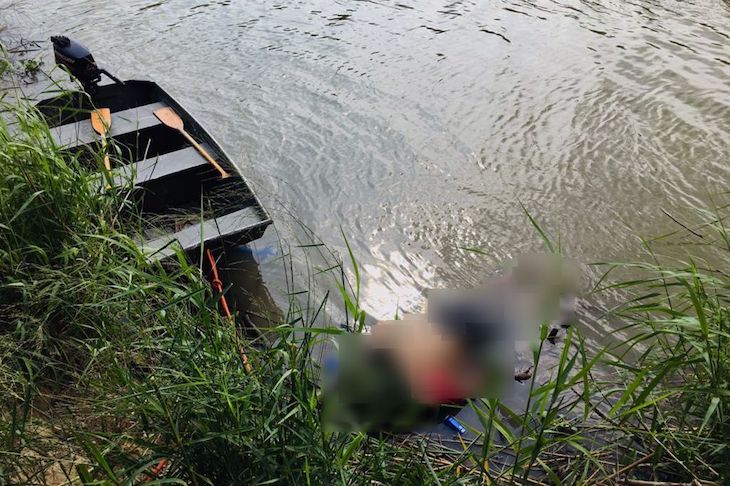The deaths of El Salvadorian migrants Oscar Ramirez and his 23-month-old daughter Valeria are, it goes without saying, a horrible tragedy. But is the photo of their lifeless bodies, washed up on the shores of the Rio Grande, really a ‘picture that shames America’, as, for example, as one newspaper frontpage put it yesterday? Whatever you think of Donald Trump’s wall or his immigration policy in general, there is little the US could have done to prevent their deaths. They died crossing a river before they had even reached US soil. They cannot be claimed to be refugees who made the journey in desperation – while the standard of living in El Salvador is lousy compared with the US, their lives do not appear to have been in danger at home. In any case, they were crossing from Mexico, having already successfully left their homeland.
Mr Ramirez and his daughter are victims of nothing but the lure of America. Mr Ramirez wanted a better life for his family, sought it by means he knew were illegal and tragically under-estimated the risks he was taking to achieve it. To prevent deaths of this nature the US would have to mount 24 hour patrols along every inch of its border, and some way into the Pacific and Gulf of Mexico – a policy which would be even more expensive than Trump’s wall. America is no more to blame for these deaths than European countries are to blame when migrant boats from North Africa sink in the Mediterranean. Wealthy, developed nations which find themselves a magnet for migrants can mount rescue patrols and – better still – discourage migrants from making dangerous journeys by beefing up their refugee operations abroad while at the same time systematically returning economic migrants who try to reach their shores. But they cannot feasibly prevent every single migrant making a dangerous journey.
In one sense, however, the photo of Mr Ramirez and his daughter does shame western nations – just not in the way many assume. Would newspapers be showing photographs of a dead child and her father had they not been migrants from a developing country? They don’t show us photographs of dead road accident victims, dead knife crime victims – nor, indeed, photographs of other children who die in drowning accidents, either in rivers, swimming pools or the sea (800 American children die in this way every year – deaths which the US government has far more power to prevent than those which occur to foreigners, outside the country) .
We don’t generally get shown photographs of the dead, even when they might shock government into taking action on road safety or crime, for a very simple reason: it breaches the dignity of the deceased. Very different standards seem to be applied, however, to people from developing countries, who seem to be considered fair game for newspapers which want to attract readers with shocking images.
I wrote for The Spectator before about this phenomenon, regarding Phan Thi Kim Phuc, the Vietnamese girl who was photographed running naked down a road after a napalm attack – and whose photo is still regularly splashed around with abandon, in spite of the fact that she is still alive and suffers traumatic memories of the attack. No European or American child in a state of agony and nudity would have had their photograph splashed over the papers.
Migrants deserve our compassion. But that ought to extend to respecting their dignity in the way we respect the dignity of our own citizens.


















